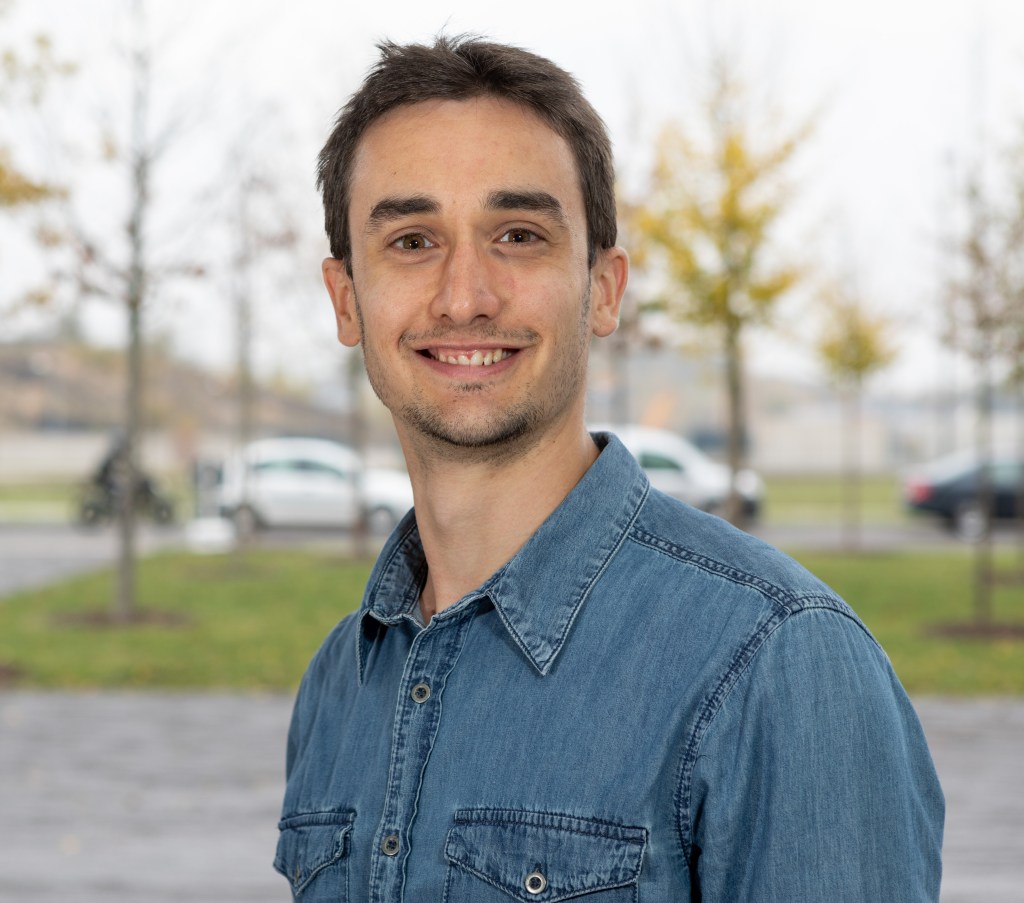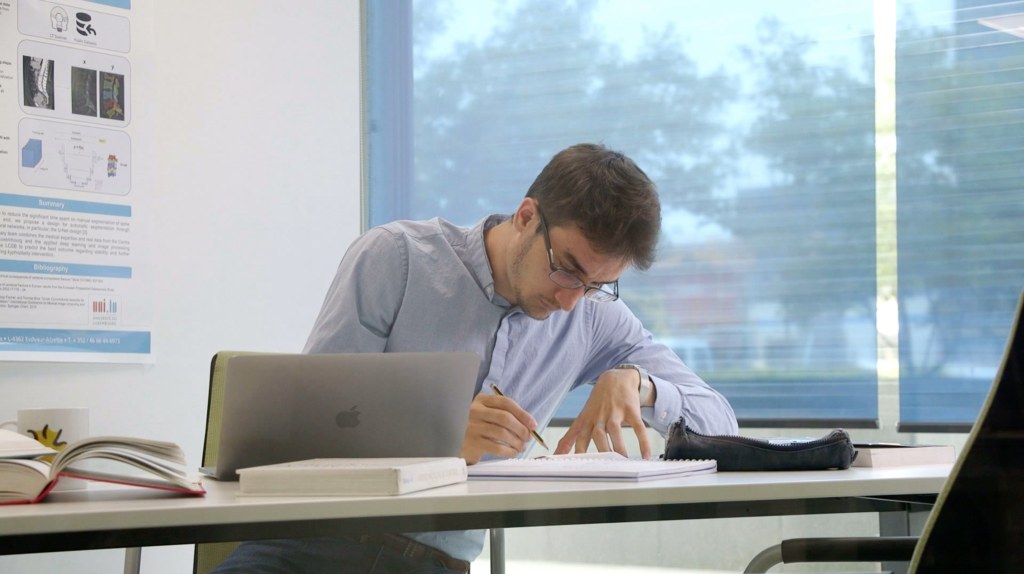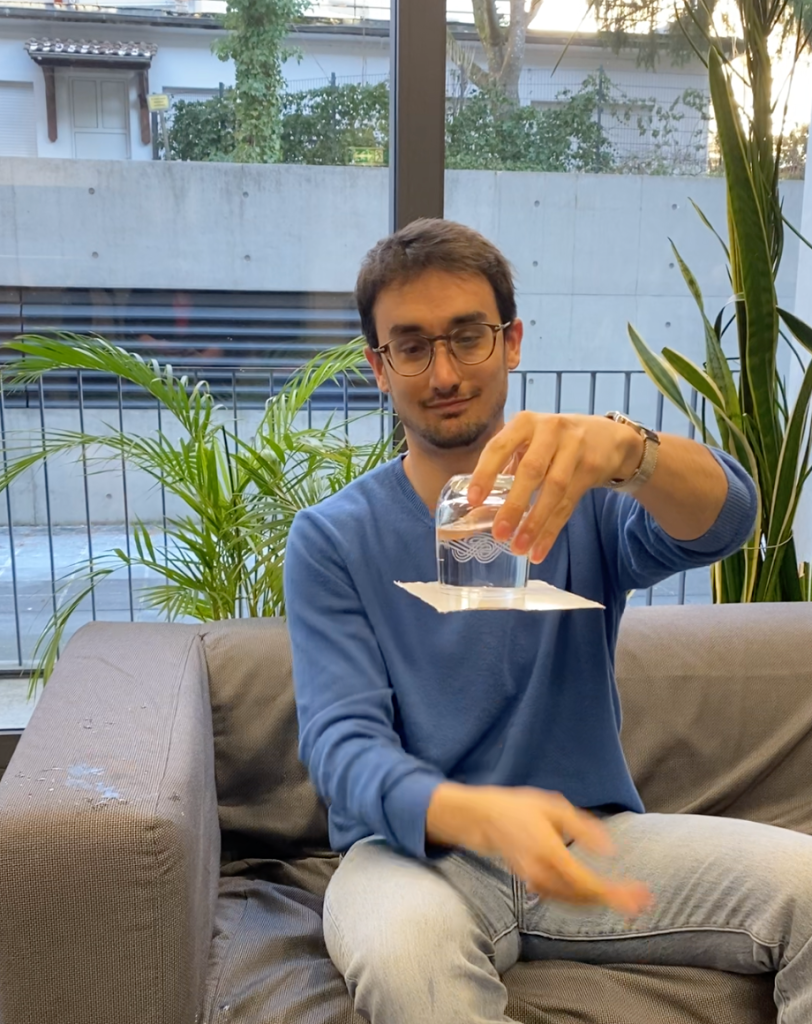In conversation with our young researchers: Daniele Proverbio
03 September 2021

Mathematical modelling.
The possibility of having solid and general mathematical results opens many potential future applications.
One of the prospects is to predict the time evolution and its driving mechanisms of any x. As such, x can describe anything we want to apply the theory to. The detection of dangerous epidemic trends is, for instance, one immediate application of great societal impact.
Why do certain systems suddenly start functioning in unpredictable and drastically different ways?
Daniele Proverbio is a doctoral researcher at the Luxembourg Centre for Systems Biomedicine (LCSB) at the University of Luxembourg. His main research lies at the intersection of physics, systems biology and computational sciences.
Mathematical methods as a go-between
Daniele Proverbio is a physicist whose project primarily concerns the classification of driving mechanisms for abrupt regime shifts in dynamical systems.
The Italian citizen seeks to understand how certain system suddenly start functioning in unpredictable and drastically different ways, undergoing the so called “critical transitions”. Epileptic seizures, i.e. when a healthy brain suddenly becomes restless, is one applied problem he is investigating. Another is epidemic evolution, whose mathematics is very similar to that of the other systems, which allows an immediate application of many theoretical results.
“I am addressing the question: is it possible to raise an early alert for such changes? This endeavour requires developing mathematical models and computer simulations, knowing the biology of what is modelled, and combining them consistently.”
Daniele Proverbio
Daniele Proverbio is also involved in other projects that span from understanding the synchronisation of certain multi-unit systems, through the application of deep learning techniques for medical imaging, to collaborative modelling of the effects of brain stimulation for Parkinson’s disease patients.

“I believe that the collaboration of mathematical models and laboratory experiments might help unravelling the main mechanisms for the onset of certain diseases, thus assisting practitioners and patients.”
Daniele Proverbio
The common thread linking the researcher’s projects is finding accurate descriptions of certain systems with mathematical methods, extrapolating useful information, and using it to best describe and predict the temporal evolution of that system.
Research to understand natural phenomena
Daniele Proverbio’s first research experience occurred while writing his undergraduate thesis on cosmic rays at the Karlsruhe Institute of Technology.
In addition of earning a Master’s degree in Physics of Complex Systems at the University of Turin, he graduated at the Scuola di Studi Superiori di Torino “Ferdinando Rossi”, an institution of excellence focusing on multidisciplinary subjects.
“My main interest is to understand natural phenomena, and to help others to understand them as well. I believe that research is the best suited job for this, as well as for enjoying the freedom of pursuing intellectual challenges.”
Daniele Proverbio
Why Luxembourg as a research destination?
In 2018, Daniele Proverbio joined the Systems Control group of the Luxembourg Centre for Systems Biomedicine (LCSB) at the University of Luxembourg to conduct a PhD. “The LCSB is a peculiar environment, which hosts theoretical groups amidst experimentalists. This enables true interdisciplinarity: a physicist like me can ask a biologist the necessary information to develop a valid model, as well as to get the data to test it.”

“Research-wise, I love Luxembourg for its short bureaucratic ladders: even as a young researcher, I could directly get in touch with directors and nation-wide associations, which are often difficult to get in touch with in larger countries. This enables further responsibilities and learning opportunities that would have been impossible otherwise.”
Daniele Proverbio
To him, the University of Luxembourg is extremely active in escalating its research potential. “Researchers can benefit from competitive funding, state-of-the-art facilities and assistance for outreach and networking. All this while being small enough not to be dispersed and retaining a human dimension.”
A Research Luxembourg COVID-19 Taskforce member
Daniele Proverbio has actively participated in Research Luxembourg COVID-19 Taskforce.
In particular, he is involved in the Statistical pandemic projections work group, led by Prof. Rudi Balling and Dr Alexander Skupin. The overarching aim is to provide short- and medium-term projections that can be used to support the healthcare system, identify priorities and facilitate decision-making.
He also contributed to developing an extensive glossary of terms related to the coronavirus pandemic. The glossary encompasses words used to describe the COVID-19 disease caused by the SARS-CoV-2 virus, such as reproduction number and contact tracing, but also generic health-related terms (antibody, PCR test, etc.) and topics linked to mathematics, modelling and research in general (clinical trials, test statistic, etc.).
The full glossary is available on Science.lu in English, German and French.

“Effective communication in science relies on the understanding of specific terminology. This is why this handy glossary was created and why it covers a wide diversity of scientific fields, just like research at the LCSB and in Luxembourg.”
Daniele Proverbio
About living in Luxembourg
To Daniele Proverbio, “Luxembourg feels like a rich province: it is safe and calm, it offers most of the facilities a person needs for professional and leisure time, and it promotes peace of mind.”
“Luxembourg has great sport and biking facilities. It is a safe country and is very caring for its citizens. In addition, its multicultural environment is amazing to gain a fresh breath of the world.”
Daniele Proverbio








